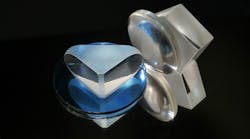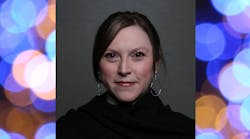Cambridge has hosted one of the world’s first events to celebrate The International Year of Light and Light-Based Technologies (IYL 2015) on 9th January. IYL 2015 is a global initiative adopted by the United Nations to raise awareness of how optical technologies promote sustainable development and provide solutions to worldwide challenges in energy, education, agriculture, communications and health.
The University of Cambridge and UCL (University College London) will jointly host an Industry Day for their joint Centre for Doctoral Training in Integrated Photonic and Electronic Systems (IPES). The Centre is funded by the Engineering and Physical Science Research Council (EPSRC) and is one of the world’s leading research and training centres for optical technologies (photonics) and their integration with electronics. Professor Alwyn Seeds (UCL Electronic and Electrical Engineering), Centre Director said “Everyone knows that light is vitally important for life, but few realise how important optical technologies are for life in the 21st century. Our Industry Day will encourage industry and other public bodies to work with us to equip the next generation of scientists and engineers to harness the full potential of light based technologies to change our world for the better. Graduates from our Centre’s 4 year PhD programme will be the next generation of photonics pioneers with the skills and confidence to drive future technology research, development and exploitation through new produces, processes and services. Their skill set is already greatly in demand from companies and research organisations, as photonics becomes fully embedded in electronics-based systems applications ranging from communications to sensing, industrial manufacture to biomedicine.” The Centre’s Industry Day will host a wide range of UK technology companies who will be encouraged to offer Masters and PhD students research projects that are relevant to industry needs. The Centre’s research is already contributing to a new wave of technologies in fields as diverse as communications, displays, bio-medical imaging and construction. The photonics industry is growing rapidly and experts predict that integrated photonic systems will become one of the most significant enabling technologies of the next few decades. Matt Cassie, Patent Director at Intellectual Property specialists HGF Ltd who is sponsoring the Cambridge event said: “The International Year of Light comes at a time when the global photonics and optoelectronics industry is maturing into a trillion dollar market. The UK is well positioned to grow this market further with world-leading research capabilities in academia and the private sector, and the Industry Day that HGF is supporting at the Centre for Doctoral Training (CDT) in Integrated Photonic and Electronic Systems shows this strength. There is still a huge amount of untapped commercial potential for this key enabling technology and HGF’s Intellectual Property specialists will be helping ensure UK photonics companies see the full commercial benefit of their innovations by working to capture and help commercialise the value generated by their R&D.” About the UNESCO International Year of Light 2015 (IYL 2015) A wide range of IYL 2015 programs taking place globally will promote improved public and political understanding of the central role of light in the modern world while also celebrating noteworthy anniversaries in 2015—from the first studies of optics 1,000 years ago to discoveries in optical communications that power the Internet today. Web site: www.light2015.org About the UCL-Cambridge Centre for Doctoral Training in Integrated Photonic and Electronic Systems (IPES) The Centre for Doctoral Training (CDT) in Integrated Photonic and Electronic Systems is a leading centre for integrated photonics and electronics research in the UK bringing together the expertise of two world leading research universities, UCL and the University of Cambridge. It has been set up since 2009 (originally named the Centre for Photonic Systems Development) and is EPSRC funded. The Centre which involves 100 academic staff at UCL and Cambridge, connects science and engineering with business, to develop practical, real-world solutions by building strategic partnerships between our research communities and a range of leading optics and photonics companies. The Centre trains postgraduate students, using innovative teaching and learning techniques and collaborates closely with a wide range of leading companies and research centres worldwide. About UCL Electronic and Electrical Engineering UCL Electronic and Electrical Engineering is the oldest department of its kind in England, founded in 1885. The Department is one of the leading research-led departments in its subject area, worldwide, and has recently been named one of the top 3 departments in the UK in its subject area in the REF 2014. The Department’s ethos of constant development and innovation continues a tradition inspired by it’s first Head of Department, Professor Sir Ambrose Fleming, inventor of the thermionic valve and hence the founder of the discipline of electronics. About Cambridge University Engineering Department The Department of Engineering is the largest department in the University of Cambridge, representing approximately 10% of the University's activities by the majority of common metrics, and is one of Europe's largest integrated engineering departments. It achieves the highest standards in both research and teaching. Its international reputation attracts the best students, academics, sponsors and partners from around the world. About the EPSRC The Engineering and Physical Sciences Research Council (EPSRC) is the UK’s main agency for funding research in engineering and physical sciences. EPSRC invests around £800m a year in research and postgraduate training, to help the nation handle the next generation of technological change. The areas covered range from information technology to structural engineering, and mathematics to materials science. This research forms the basis for future economic development in the UK and improvements for everyone’s health, lifestyle and culture. EPSRC works alongside other Research Councils with responsibility for other areas of research. The Research Councils work collectively on issues of common concern via research Councils UK.E-mail:
Web site:
Contact:
Timothy Bodley-Scott - UCL-Cambridge CDT Integrated Photonic and Electronic Systems (IPES)
+44-(0)-20-7679-3976 (x 33976)
E-mail:
Web site:
Submit new products, case studies/projects, and other press releases at http://www.ledsmagazine.com/content/leds/en/addcontent.html and http://www.ledsmagazine.com/content/leds/en/iif/add.html.






